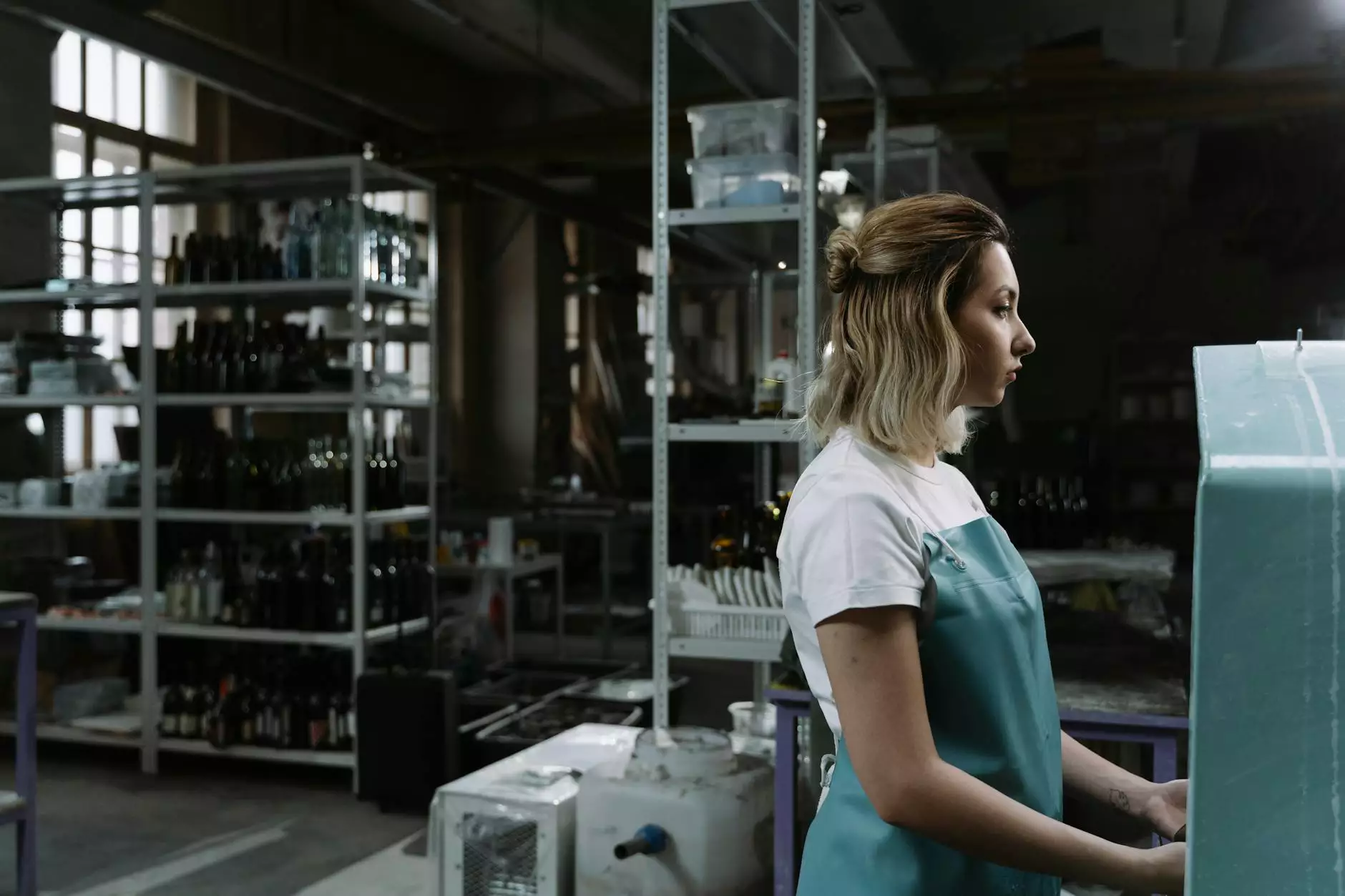Comprehensive Guide to Metal Fabrication for Injection Molding Plastics

In today's highly competitive manufacturing landscape, businesses dedicated to producing high-quality plastic components must rely on precision engineering and expert metal fabrication services. At DeepMould.net, our metal fabricators are committed to delivering top-tier solutions tailored specifically for injection molding plastics. This article explores the critical role of metal fabrication in the injection molding industry, highlighting how our expertise can elevate your manufacturing efficiency, product quality, and overall business success.
Understanding the Role of Metal Fabrication in Injection Molding Plastics Manufacturing
Metal fabrication forms the backbone of numerous components used in injection molding plastics processes. From mold bases, core pins, and ejector plates to heat sinks and cooling channels, precisely manufactured metal parts are vital in ensuring the durability, precision, and performance of plastic molds. Effective metal fabrication enhances the ability to produce complex geometries, maintain tight tolerances, and optimize cycle times, all of which contribute to superior product quality and cost efficiency.
Deep Mould's expertise in metal fabrication encompasses a wide array of techniques, including CNC machining, precision grinding, welding, and surface treatment. These methods allow us to create customized solutions that meet the demanding specifications of injection molding plastics applications, providing our clients with a competitive edge in their respective markets.
The Critical Importance of Material Selection in Metal Fabrication for Injection Molding
Choosing the right materials is pivotal in metal fabrication for injection molding mold components. Factors such as thermal conductivity, wear resistance, machinability, and corrosion resistance influence this decision-making process. Here are some of the most commonly used metals and alloys for this purpose:
- H13 Steel: Known for its exceptional toughness, heat resistance, and durability, H13 is a popular choice for core and cavity inserts, especially in high-volume production environments.
- S136 Stainless Steel: Offers excellent corrosion resistance and polishability, ideal for molds that require high aesthetic quality.
- P20 Steel: Widely used for prototype and low-volume production molds due to its ease of machining and cost-effectiveness.
- Aluminum Alloys: Used for rapid prototyping and small production runs, thanks to their lightweight nature and quick machining capabilities.
At Deep Mould, we meticulously select materials based on the specific requirements of each project, ensuring that the fabricated components deliver optimal performance and longevity in injection molding plastics applications.
Advanced Metal Fabrication Techniques for Precision Injection Molding Components
Our metal fabricators utilize state-of-the-art techniques to achieve unmatched precision and surface quality in mold components. These techniques include:
CNC Machining
Computer Numerical Control (CNC) machining allows for the creation of complex, high-precision metal parts with tight tolerances. It is essential for manufacturing core pins, cavities, and intricate cooling channels used in injection molding plastics. Our CNC centers are equipped to process a variety of metals, ensuring each component meets specified dimensional accuracy.
Surface Finishing and Treatments
Surface finish quality directly impacts the surface appearance and function of plastic parts. We employ techniques such as polishing, coating, and hardening processes like nitriding or carburizing to enhance surface durability, reduce wear, and improve release properties.
Welding and Assembly
Precision welding techniques such as TIG and laser welding enable us to assemble complex, multi-part molds with seamless integration. This ensures high structural stability and longevity, which are critical for repetitive injection cycles.
Design for Manufacturing (DFM): Ensuring Optimal Metal Fabrication for Injection Molding Plastics
Fundamental to achieving cost-effective and efficient injection molding plastics production is the concept of Design for Manufacturing (DFM). Our engineering team collaborates closely with clients during the design phase to:
- Minimize complex features that are difficult to machine or produce.
- Ensure component geometries are suitable for the selected fabrications methods.
- Optimize mold designs to facilitate easy assembly and maintenance.
- Reduce material waste and production costs.
By integrating DFM principles into our process, Deep Mould helps clients accelerate project timelines, reduce costs, and improve the overall quality of injection molding plastics.
Why Choose Deep Mould for Metal Fabrications in Injection Molding
As a leader in the field of metal fabrication, Deep Mould offers unmatched advantages for businesses involved in injection molding plastics manufacturing:
- Expertise and Experience: Over years of servicing clients across various industries, our team understands the intricacies of mold fabrication and the specific needs of injection molding plastics.
- Advanced Equipment: Our cutting-edge CNC machines, finishing tools, and welding equipment ensure precision and quality control at every step.
- Customization and Flexibility: We deliver tailored solutions that fit your project specifications, production volume, and budget constraints.
- Quality Assurance: Every component undergoes rigorous inspection and testing to meet international standards and customer expectations.
- Fast Turnaround: Our streamlined processes enable rapid delivery without compromising on quality, helping clients stay ahead in competitive markets.
The Impact of Quality Metal Fabrication on Injection Molding Plastics Production
High-quality metal fabrication directly correlates with the efficiency and success of the injection molding plastics process. Precisely fabricated molds result in:
- Improved Surface Finish: Reducing the need for secondary finishing processes on plastic parts.
- Enhanced Dimensional Accuracy: Ensuring consistent part quality across production runs.
- Longer Mold Lifespan: Reducing downtime and maintenance costs due to wear and fatigue.
- Faster Cycle Times: Allowing higher throughput and increased productivity.
Every element of the mold, crafted through expert metal fabrication, plays a strategic role in optimizing the injection molding process, ultimately delivering superior end-user products.
Innovation and Future Trends in Metal Fabrication for Injection Molding Plastics
The future of metal fabrication in injection molding plastics is poised for remarkable advancements driven by technological innovation. Some emerging trends include:
- Additive Manufacturing: 3D printing of molds and components for rapid prototyping and complex geometries.
- Smart Manufacturing: Integration of IoT sensors for real-time monitoring and predictive maintenance of molds.
- Advanced Materials: Development of new alloy formulations that offer better thermal stability and wear resistance.
- Automation and Robotics: Enhanced precision and efficiency in metal fabrication processes through automation.
Deep Mould remains at the forefront of these trends, constantly investing in new technologies and methodologies to provide our clients with cutting-edge solutions for injection molding plastics.
Partner with Deep Mould for Your Metal Fabrication Needs in Injection Molding
Whether you're developing prototype molds or producing high-volume manufacturing parts, our comprehensive metal fabrication capabilities ensure that your project benefits from superior quality, durability, and precision. Partnering with DeepMould.net means choosing a dedicated team committed to excellence and innovation.
Contact us today to discuss your specific requirements and discover how our expertise in metal fabrication for injection molding plastics can help elevate your manufacturing process and accelerate your business growth.









